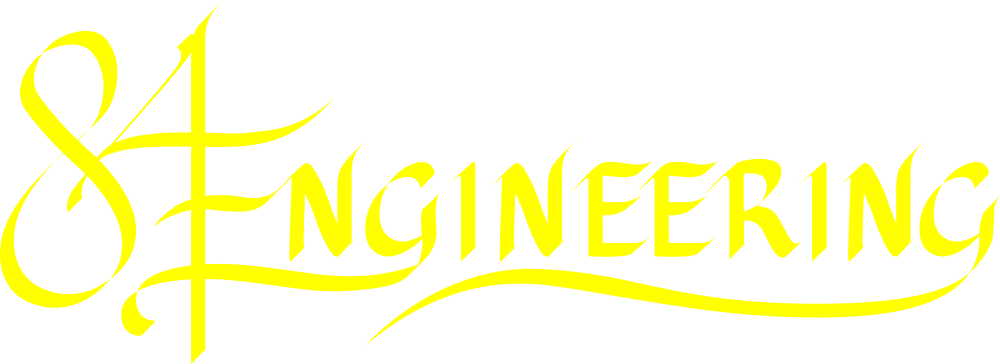Why we only use rubber coated wheels on our belt grinders
If you have been around the knife making scene for a while, there is a good chance you've heard about the 'rubber vs solid aluminium' belt grinder wheel debate.
The point often made in favour of aluminium wheels is that 'rubber wheels simply do not last'.
In this blog post we will discuss why there is sometimes a negative connotation around rubber wheels, and explain how we have resolved the wear issues and why we still go the effort and expense of rubber coating the wheels on all 84 Engineering belt grinders.
Aluminium vs Rubber wheels
Rubberising belt grinder wheels is an expensive and time consuming process, so why do all 84 Engineering products use rubberised wheels?
-
SMOOTHER GRINDING, HIGHER QUALITY FINISH - Urethane grinding wheels flex or deform slightly under pressure, acting as a 'shock absorber' when grinding. Belt discrepancies (i.e. a thick glue joint) are less noticeable - less 'bumpy'. This not only makes for a smoother grinding experience, but actually leaves a higher quality finish on the workpiece.
-
BETTER TRACTION - Urethane wheels offer far superior traction when compared to aluminium wheels. We guarantee that a drive wheel will never slip on an 84 Engineering belt grinder - even during high pressure, slow speed grinding. The rubberised wheels also enable features such as the fully adjustable belt tension found on the Gibson 2x72" - very low belt tension can be run for slack belts etc. without slipping the drive wheel.
- QUIET - Grinders with rubberised wheels tend to be far more quiet than grinders with aluminium wheels as the urethane effectively isolates the belt from the grinder frame. Less vibrations, less rattles, less belt noise.
So there are benefits to grinding with rubber wheels, but what about the wear issues? Aluminium wheels last longer right?...
Excessive wear - a bad batch
For a period of time 84 Engineering utilised a nitrile rubber coating on grinder wheels - a process we out-sourced to another Australian business specialising in rubber.
After a year or so, we started receiving reports that some customers were having problems with wheels wearing excessively. We later discovered that this may be partially due to the nitrile softening at the high temperatures the wheels can reach during heavy and extended grinding.

Changing the formula
Once the issues with nitrile rubber became clear, 84 Engineering underwent the process of bringing wheel coating in-house.
Dozens of mould design iterations and extensive product testing has resulted in changing to a new polyurethane formula and creating a proprietary rubberising process.
The new wheels are highly resistant to heat and abrasion, resulting in a grinder wheel that provides excellent longevity whilst offering all of the benefits of rubber grinder wheels.



Properties of polyurethane
All 84 Engineering wheels are now coated with a 'Polytetramethylene Ether Glycol' (Polyurethane) polymer.
This is a high-quality product used primarily in heavy industry, and is ideal for grinder wheels for many reasons:
-
Great shape retention / recovery properties
-
Minimal flex fatigue
-
High tensile strength - resistant to tearing
-
Abrasion & impact resistant
-
Water / chemical resistant
- Temperature resistant

Since June 2022, all 84 Engineering wheels have been coated with the new polyurethane formula (discernible by the engraved aluminium hub). We are confident that wheel wear issues are a problem of the past and haven't seen wear on polyurethane wheels even after 7 years of heavy use! (the first 84 Engineering grinders were equipped with cold-poured polyurethane wheels).

